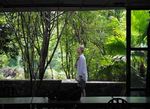TEACHING AT UWC MAHINDRA COLLEGE
←
→
Page content transcription
If your browser does not render page correctly, please read the page content below
TEACHING AT UWC MAHINDRA COLLEGE
“The UWC movement makes education a force to unite people, nations and cultures for peace and a sustainable future.”
Our Faculty Our Students
UWC Mahindra College is composed of Students at UWC schools and colleges, are chosen
approximately 25 faculty members from diverse for their intellectual and social commitment
nationalities which at any given time, has included to creating a more peaceful and sustainable
teachers from the UK, Australia, Canada, Norway, future. Selections take place through National
Spain, the US, India, South Africa, Germany, France Committees located in 130 countries, and not
amongst other nations. Our faculty comes with directly to the school. At UWC Mahindra College,
experience in a variety of educational systems, students usually come from around 55 countries.
including experience as students or teachers at Our deliberate diversity policy aims to ensure that
other UWCs. The Head of College and the Head students are chosen based on their merit only
of Academics teach classes and are involved and not on their gender, class, religion, political
members of the faculty. All full-time faculty live affiliation, caste, socioeconomic status or sexual
on our campus, creating a strong community orientation. Currently, 70% of students are on
of educators dedicated to delivering an intense some form of scholarship, with the expectation
and rewarding educational programme to our that the College will be in a position in the coming
students. Style is important. If your style is years to fulfill 100% needs-based financial aid for
primarily didactic, then UWC Mahindra College students. 100% of students coming through the
is not for you. Our teachers must encourage Indian National Committee are on some form of
discussion, love of learning and critical thinking needs-based scholarship. All our students live on
in their classrooms. Experiential education is campus as the residential aspect of the school is
very important to us and we believe is a crucial an important part of the curricular model. In trying
difference between teaching at a UWC and other to achieve our mission, many of our students will
international schools. come from areas representing different sides of a
conflict or a post-conflict area.10 reasons to teach at UWC Mahindra College
1. A dynamic, engaged and motivated student body to teach.
2. Strong staff involvement in the students’ personal and social
development.
3. An informal atmosphere where strong bonds are created
with students, staff and faculty.
4. The opportunity to live and travel in India.
5. Great facilities and a range of activities and service
opportunities.
6. A stunning location- combining living on a biodiversity
reserve and a rural Indian lifestyle- yet only an hour from one
of India’s most cosmopolitan cities.
7. A dynamic and fulfilling working environment, with
significant autonomy for teaching.
8. Scope for professional advancement through the
involvement in the creation or delivery of innovative curricula
both for the IB and beyond the IB.
9. Excellent placement opportunities as an international
teacher in UWC/IB schools post-contract.
10. A competitive benefits package and a high potential for
savings given a zero-cost life on campus.
The UWC Mahindra College benefits package includes a
competitive salary, furnished and comfortable housing with
utilities, medical insurance, recruitment flights, summer
living allowances, transport allowance, meal allowance in
the cafeteria and a professional development allowance.
Learning Programme
We believe that a UWC Mahindra College education is transformational both for the student and our faculty. We encourage
project-based experiential learning with a commitment to social justice and sustainability issues. We are exploring new
and innovative ways to deliver our curriculum- including having a non-IB option for students, design and technology, social
innovation and entrepreneurship and more project-based learning. Students and faculty will have the opportunity to work
on service projects on campus, in the valleys around our college and in different communities around India. There are many
opportunities for outdoor education, including in our own biodiversity reserve. Residential life is an integral part of the
learning programme and all members of the community are expected to take part in the daily life on campus.Our Campus The UWC Mahindra College is located on a stunning 180 acre campus which was recognized by the Prime Minister of India as a Biodiversity Reserve. There are many walking, hiking and biking trails with scenic vistas right on campus. The campus is on a hill in the Western Ghats overlooking the Mulshi and Kolvan valleys. Despite being located in “rural” Maharashtra, we are conveniently located at an hour’s drive from Pune, which is India’s sixth largest city. The architect, Christopher Benninger, won an international award for the campus which was built using local materials and was designed to have spaces for both indoor and outdoor learning. Work is on-going to reduce the environmental footprint of the campus.
Challenges and Opportunities of Living and Working in India Living in India is an exciting and challenging prospect. Having the right mindset is important so that you can have the best experience possible. Our campus is located on a hill on a 180-acre campus, which is also a Biodiversity Reserve. Surrounding the College are rural villages which requires sensitivity in terms of dress and appropriate behavior. Living in a rural area of India, in a small residential community can lead to a sense of isolation. Although congeniality between colleagues is a great part of the experience, it may sometimes feel a bit claustrophobic to be among the same people all the time! International teachers will require some patience when dealing with the Indian bureaucracy system, which may at times be frustrating. Our campus is located approximately an hour’s drive away from the major centre of Pune, where you will find Western style supermarkets and malls juxtaposed with pollution, poverty and traffic jams. For many, it is a cultural shock to live here. As part of your responsibilities, you will be asked to participate in Project Weeks at which time you will be required to travel by third class trains and perhaps live in homestays or simple accommodations. Furthermore, all faculty members should be ready to participate in the Triveni programs (our CAS/co-curricular programs)which will bring them down to the villages surrounding the campus. Individuals must take normal safety precautions on traveling alone and must take care to dress appropriately. Sothern India is generally a very safe area, our College is secure and is in an amazing environment- however- it is important to be conscious of your surroundings when you leave. The opportunity to participate in festivals, the wonderful sights and foods and gain unique insight on an amazing culture are usually more than enough to compensate for the challenges of living here. However, it is important to come armed with lots of patience, excitement and goodwill to be able to gain the most from this experience. Visas/ Bureaucracy Overseas staff must have an employment visa to work at UWC Mahindra Col- lege. This is a potentially lengthy process and will be supported by the College with documentation, but remains the responsibility of the employee. We will give you detailed advice about visas, including requirements for a nonwork- ing spouse and for dependent children, when needed. Please note that if your country of origin (that is, place of birth or passport nationality) is Afghanistan, Pakistan, Sri Lanka or China, there is an additional step of obtaining security clearance, which will further add to the delay.
FREQUENTLY ASKED QUESTIONS How diverse is the faculty? The faculty is drawn from all over the world. One-half of it is Indian in origin. The median age is in the mid-30s though the range is from the mid-20s to the early 60s. Virtually all hold master degrees (or Ph.Ds) and several hold teaching certifications. What makes UWC students different from those at other international schools? An older student body (16-19 year olds) gives it, and other two- year UWCs, a collegiate ethos. Students tend to be self-motivated, independent, and desirous of making a difference in the world. Typically they enjoy challenge, though some also need support with some parts of the curriculum. The fact that all students and full-time faculty are fully residential extends the teaching-learning environment out of the classroom. The international and socio-economic diversity of our students and faculty also enriches both the classroom and campus life. What is the faculty housing like? The typical faculty-dwelling is a semi-detached stone bungalow with two bedrooms, a living room and a kitchen area. Faculty live one side of a student residential cluster. There are five such clusters (called Wadas) on campus. Though there are occasional problems with student-generated noise, living close to students (some of whom will be your advisees) offers several educational opportunities. What would my typical day look like? All classes take place between 7:30 and 2:10. A typical full-time teacher would, on average, teach about 3 hours a day in that period, and interact with students and faculty. Community and on-campus activities would take place on two afternoons or evenings a week. Faculty, college and adviser meetings usually take place on Monday afternoon and evening. How often do faculty go into Pune? Once a week on a Saturday may be the average, but there are Pune lovers who go in more often and others who prefer the campus’s clean air, avoid Pune as much as possible, and do most of their food shopping locally. Depending on time of day, and where in Pune you are going, the journey takes between 60 and 100 minutes each way. All full-time faculty live on campus. Admin staff typically comes in from Pune each day. Other staff are locally hired. Are there any safety issues? The campus and Pune are both very safe. There are occasional thefts from student rooms and faculty houses so we recommend that these remain locked when one is not in. We have 24-hour Security Guards on campus in addition to a Medical Centre with a doctor and nurses.
You can also read
























































